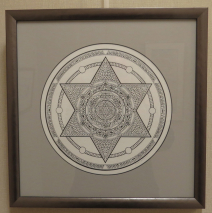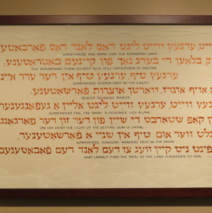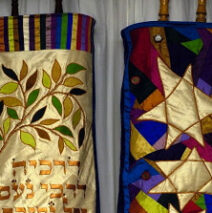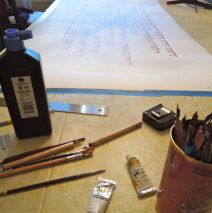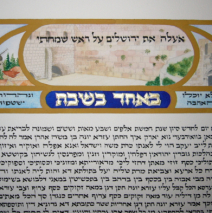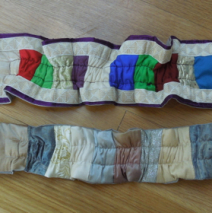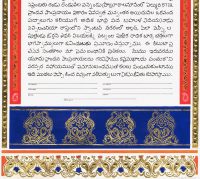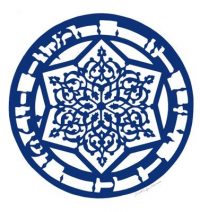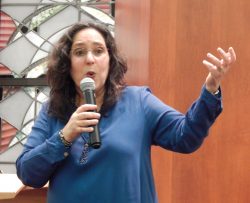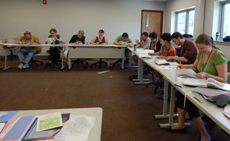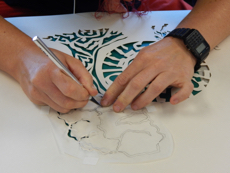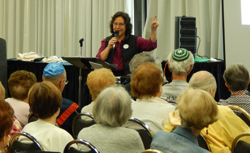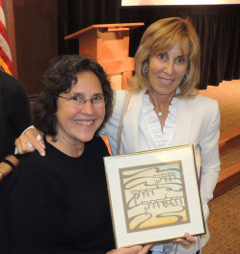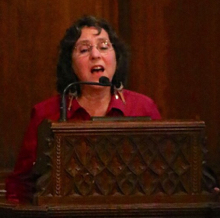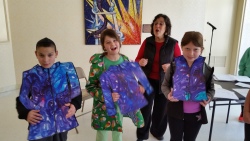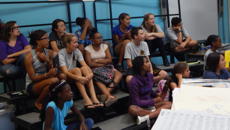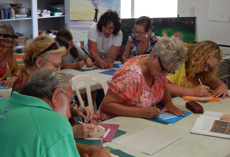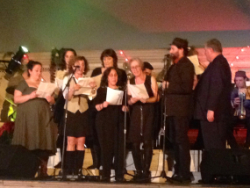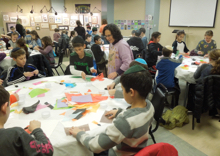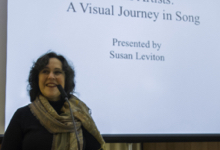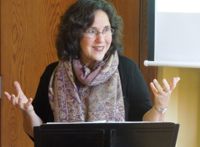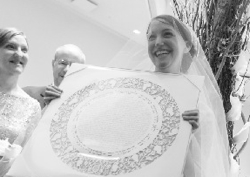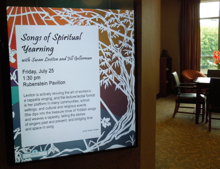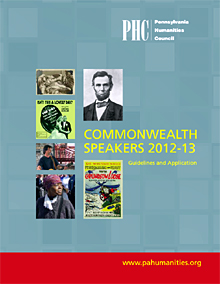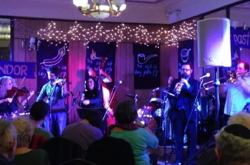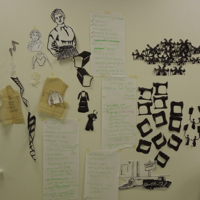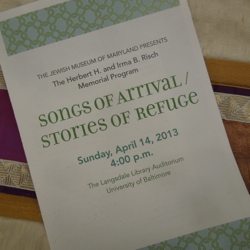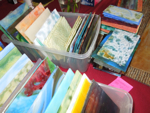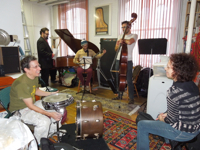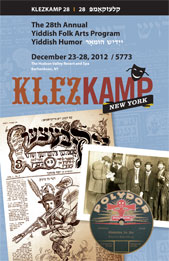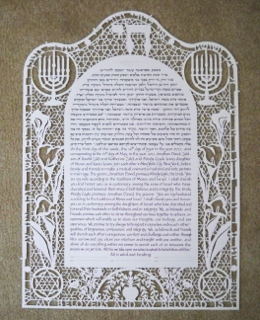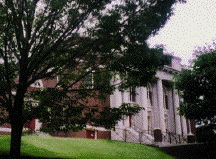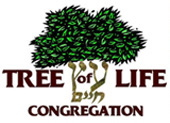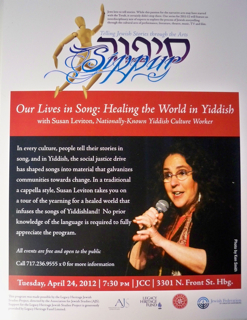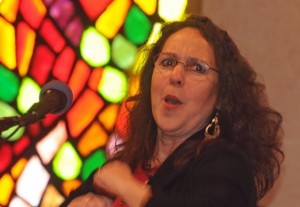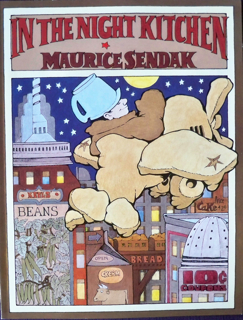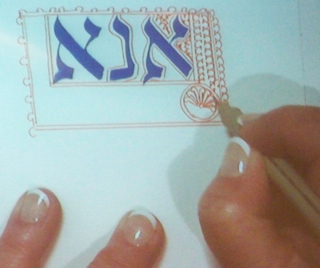Medieval Star
Throughout the Middle Ages and into the Renaissance, manuscript art filled volumes with sacred Christian, Jewish, and Moslem writings. While the lettered texts ranged from Latin to Hebrew to Arabic in a variety of ‘hands’ or lettering styles, there were some few decorative elements which were shared among the cultures. Initial letters, those elaborate letters that started pages of text and often featured fanciful animal and vine decoration, and gilded and painted leaves and dots, frequently had their counters-the spaces within the letter shapes-filled with patterns. These patterns are found in Ireland’s Book of Kells, in 15th Century Haggadahs from Spain, in elegant Books of Hours from France, and in elaborate Arabic writings from the Middle East. Trefoils, ‘golf clubs’ – little patterns that served to fill in blank spaces around letters – have fascinated me since I had the good fortune to see pages from the Book of Kells when the book toured Philadelphia in the 1970’s, and to study with Mark Van Stone, master of Celtic lettering arts. I decided to give these doodles free reign, and the result is the Medieval Star, crafted entirely of these tiny shapes. I used only a straight edge, a compass, and a Rapidograph pen, and built the design from the very center out, allowing it to grow organically. The entire design is less than 12 inches...
Read MoreSomewhere Far Away
A commissioned work five feet long and two feet in height hangs in the Penn State Library to honor child Holocaust survivor and philanthropist Linda Schwab. The honoree chose a poem by H. Leivik which was written about the freedom he sought as a political prisoner in Siberia: “Somewhere far away… buried treasure lies below the untrod snow…” Designed to fit into a reading room on Holocaust studies, the Yiddish text is written in gouache mixed to have a coppery glow, with interlinear English translation in black. Cut white paper in various textures creates a sky with snowscape below. At 60 inches, I worked with heavy watercolor paper purchased by the roll, and taped the entire piece to a massive table to complete the...
Read MoreTorah Mantles for Dickinson College
Dupionne Silks, quilted, appliqued and given dimension with trapunto techniques, mirrors, and beading add to the beauty of these two Torah mantles for Dickinson College Hillel. Click HERE for more information about these Torah...
Read MoreGallery Talk and Performance
On Thursday, April 3, 2014, I will return to the Penn State University Library Schwab Gallery in Middletown, PA to present a gallery talk and recital. The noon event will feature light refreshments and a slide lecture with song, describing the ins and outs of calligraphic art and Jewish papercutting. Following the talk, I will take people through the gallery show of 18 current works. Both artwork and my current recording, Deep Skies, will be for sale at the...
Read MoreBezalel Style Ketubah Detail
In the 1920’s the Bezalel School of Art in Palestine drew on the popular design styles of contemporary German artists and combined that sensibility with Biblical imagery and traditional Hebrew texts. This manner of framing vignettes around a central text is sometimes useful when couples come to me with a long list of disparate imagery they’d like worked into their ketubah. Here’s a detail from one such ketubah which incorporated images fof Jerusalem, references to the couple’s Hebrew names, holidays and times of year that were significant to them, and multiple passages from Hebrew...
Read MoreTorah Wimples
Goucher College commissioned me to craft mantles for their two Torah scrolls, and I sewed these wimples to match the Torah covers. In both Ashkenazi and Sephardi tradition, the Torah wimple holds an important place in communal and family life. In Europe, the wimple was often crafted from a baby boy’s winding cloth, cut into strips and embroidered with the baby’s name and Jewish design. In the Sephardi community, wimples were a unique donation item by women to synagogues. It’s important, when crafting the wimple, to know the girth of the Torah scrolls at different times of the Torah reading cycle, so it’s able to do it’s job of protecting the lettering by keeping the scroll snugly wrapped. If the klaf (parchment) is wrapped too loosely, the ink that sits on top of the parchment may be damaged, thus rendering the scroll ritually impure and...
Read More
